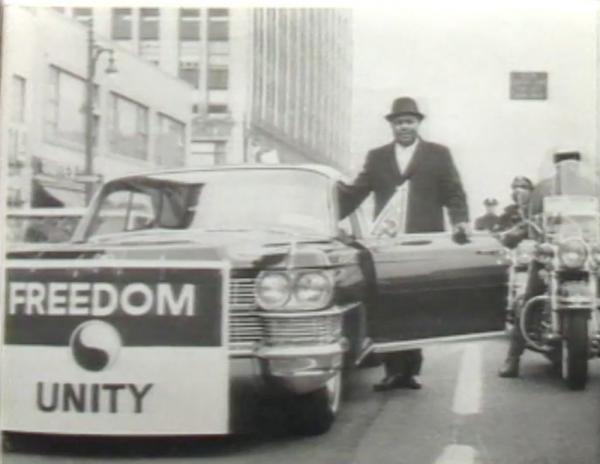Tune In Tuesdays: Preserving the American Black Journal

Reverend C. L. Franklin (1915-1984), a prominent Detroit minister, seen here in a major civil rights march that he organized in Detroit, 1963. Broadcast in 1984 as part of the American Black Journal’s tribute to Franklin.
Image provided courtesy of: WTVS / MSU-Matrix.

Reverend C. L. Franklin (1915-1984), a prominent Detroit minister, seen here in a major civil rights march that he organized in Detroit, 1963. Broadcast in 1984 as part of the American Black Journal’s tribute to Franklin.
Image provided courtesy of: WTVS / MSU-Matrix.
This post is part of our “Tune In Tuesdays” series, highlighting some of the projects NEH has supported to preserve and provide access to rich audiovisual materials important to humanities research, teaching, and the public interest. We are also proud to announce a NEH symposium on audiovisual preservation to be held on September 30, 2016, in Washington, D.C. Information about the event, called Play/back, can be found here.
In 2008, Michigan State University (MSU) received a grant from the NEH to preserve and provide access to a historic videotape collection and 40 cubic feet of supporting production materials from Detroit Public Television’s (DPTV) long-standing series American Black Journal (ABJ). A television news magazine produced by Detroit Public Television, ABJ presents an African-American perspective on news from Detroit and around the world for over four decades. Originally titled Colored People’s Time, the program encourages involvement by citizens working to improve civil rights and resolve community problems. ABJ has aired continuously since 1968, the year following the infamous 12th Street riot in Detroit. The program has value for historians, urban scholars, and others, and provides unique media coverage of Southeast Michigan urban communities.
The NEH-funded project involved bringing these unique moving image materials and related items into the university’s archival vault, digitizing nearly 700 tapes of ABJ programs, and providing online access to a large subset of tapes. Streaming video of selected ABJ shows spanning 1968 to 1990 is visible in the Web-based resource, American Black Journal: Documenting Detroit & American History from African-American Perspectives.
The project involved collaboration between MSU’s MATRIX Center for Digital Humanities and Social Sciences and Libraries Special Collections and Detroit Public Television, as well as the Charles H. Wright Museum of African-American History.
ABJ programs are now available via streaming video, allowing public access to a wide variety of the show’s news material and interviews with notable artists. Highlights include:
- Interviews with notable artists, including: musician Lena Horne and poet Nikki Giovanni, Millie Jackson, Eartha Kitt, and Stevie Wonder, among others;
- Interviews with civil rights community leaders, such as Rev. C. L. Franklin and Jesse Jackson;
- Segments with U.S. Congressman John Conyers on the evolving work of advocating for civil rights over last decades of the twentieth century;
- A show outlining the history of Detroit-based Motown Records, featuring an interview with Earl van Dyke, keyboardist for the in-house Funk Brothers band;
- Segments on topics of current concern, including the 1967 Detroit civil rights riots, education, and the struggle against apartheid in South Africa, including an interview with Archbishop Desmond Tutu.
With NEH support, MATRIX staff and interns were able to index the preserved segments by the name of show hosts over the years as well as notable guests in each show, as well as to produce a thematic guide to ABJ programs. Take a few moments to “tune in” to these historical media!







